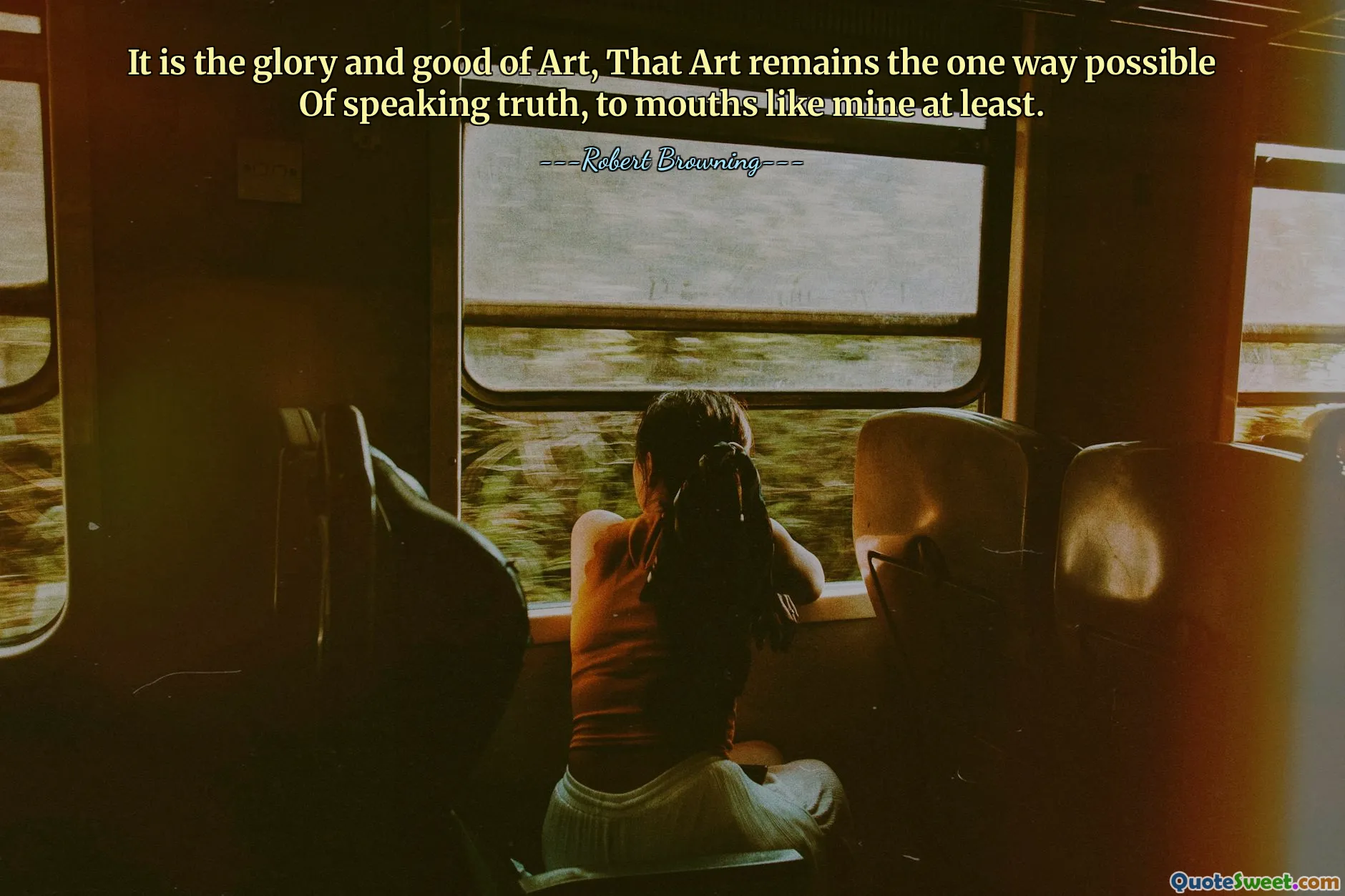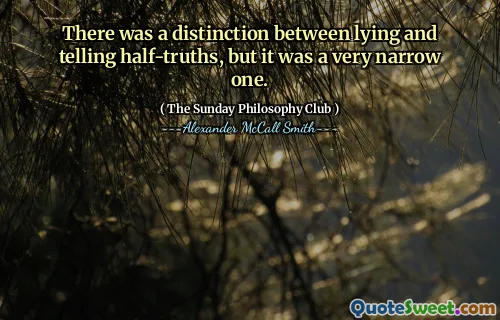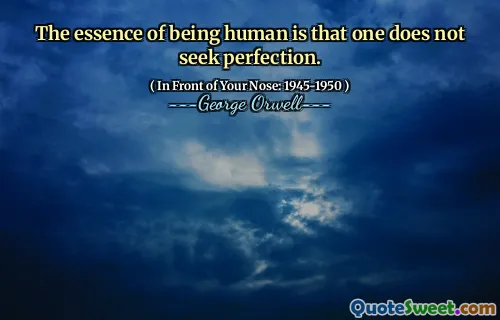
It is the glory and good of Art, That Art remains the one way possible Of speaking truth, to mouths like mine at least.
Art functions as an enduring voice for truth, especially for those whose words might otherwise be unheard or misunderstood. The quote highlights the unique power of artistic expression to convey genuine human experience and moral honesty, serving as a vital conduit for truth when direct speech might be constrained by societal norms, personal limitations, or external suppression. Artistic mediums—whether poetry, painting, music, or theater—possess a universality that transcends language barriers and social divides, enabling artists to speak uncomfortable or profound truths that resonate across different audiences. This notion affirms the importance of art not only as a form of aesthetic pleasure but as a moral instrument and a catalyst for societal reflection. The idea that art remains one of the few ways to authentically communicate truth emphasizes its role as a form of resistance, education, and enlightenment. For individuals like the speaker, who might feel marginalized or silenced in everyday discourse, art offers a safe harbor where truth can be expressed passionately and honestly. Its power lies in its ability to evoke empathy, provoke thought, and inspire change through the unvarnished portrayal of reality. Whatever the challenge of explicit speech, art endures as a testament to human integrity, a beacon of authentic communication that broadens understanding and fosters communal insight. This makes art invaluable—not only for its beauty but through its capacity to reveal unvarnished truths about our world and ourselves.











